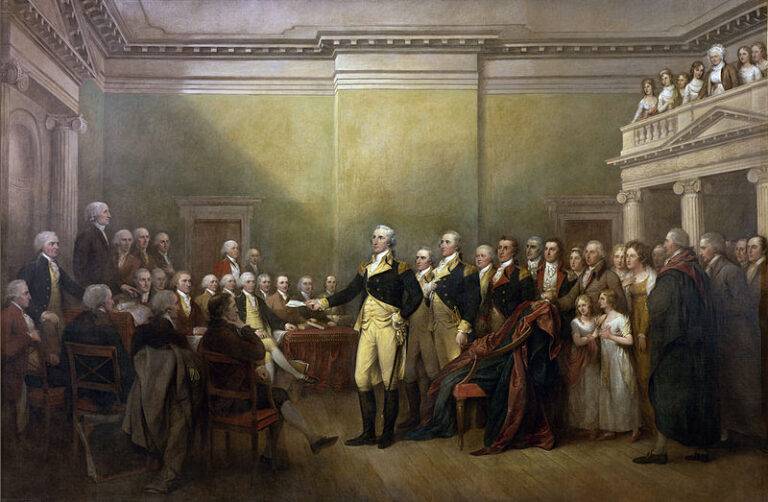203A.D: Death of Irenaeus, Bishop of Lyons, one of the Fathers of the Church, whose incisive writings on the false teachings of the Gnostic sect played a primary role in establishing the canon of the New Testament.
1098: Three years into their campaign to re-capture Jerusalem from its Moslem occupiers, knights of the First Crusade win a strategic victory during the siege of Antioch, when they defeat a powerful Saracen relief army led by Kerboghan of Mosul. The subsequent victory at Antioch itself frees the Crusaders to continue their march toward the Holy City.
1284: A piper dressed in multi-color (“pied”) clothing lures one hundred thirty children away from Hamelin, Germany. They are never heard from again. The roots of this story are deep and persistent, and although the details vary, there are many constants: the town itself (Hamelin), the number (130), the date (Feast of St. John and Paul (June 26th)), the sudden disappearance, and a nefarious, colorful “leader” who takes them all away.
1358: Establishment of the Republic of Dubrovnik. The walled city was conquered by Venice during its march of conquest to the Fourth Crusade in 1205, and for a hundred fifty years afterward served as a naval base protecting Venice’s Adriatic approaches, in addition to providing substantial raw materials in support of Venetian trade. Ironically, today’s establishment was an unintended consequence of the Fourth Crusade’s fatal weakening of the Byzantine empire: the rising Ottomans took control of the Dalmatian coast, and while they extracted a substantial level of tribute from the city, they also gave it free reign to develop its own commercial interests, essentially permitting it to become a perpetual rival to Venice during the height of the Spice Trade in the 15th and 16th centuries.
1519: Charles V is elected Holy Roman Emperor. His election signals the high water mark of the Hapsburg dynasty in terms of territory under a single ruler: essentially all of civilized Europe, a feat not seen since Charlemagne, nor again until Napoleon. The Hapsburg dynasty continues to this day. The most recent leader in the public eye was Otto von Hapsburg (1912-2011), legitimate heir to the throne of Austria-Hungary from his father’s death in 1922 to his own death twelve years ago. Hapsburg was president of the “International Pan-European Union” from 1973-2004, and a prominent Member of the European Parliament, consistently speaking out on the need for a viable political union for the nations of Europe. This family represents over 500 continuous years of actual and potential leadership over a unified Europe. Current head of the family is Otto’s son, Karl von Habsburg (b.1961), an Austrian politician.
1613: William Shakespeare’s Globe Theatre burns to the ground, a victim of a malfunctioning stage cannon that ignited the building during a performance of Henry VIII.
1778: The Continental Army, after its bitter wintering-over in Valley Forge and six months of intense military training under the tutelage of Baron von Steubin, intercepts the British army of Sir Henry Clinton enroute to New York. The Battle of Monmouth (NJ) is the first real force-on-force action between the Continentals and the British, and ended in a draw in terms of ground taken or lost, and also in casualties. General George Washington distinguished himself halfway through the battle as he rallied his men to re-group and press forward with the attack. Monmouth also saw Carlisle, Pennsylvania native Molly Pitcher in action, swabbing out guns and providing water to the exhausted Americans.
1788: The Commonwealth of Virginia becomes the 10th state to ratify the U.S. Constitution
1850: Birth of Herbert Kitchener (d.1916), who rose to prominence in British arms after capturing the Sudan at the Battle of Omdurman, near Khartoum. As second in command during the Boer War he planned and executed a literal scorched earth campaign against Boer farmers, which included the round-up and internment of their families in concentration camps, where the death rate approached 35% . At the turn of the century he became Commander-in-Chief, India, after which he became Council-General of Anglo-Egyptian Sudan. At the start of the Great War Kitchener was brought back to England as Secretary of State for War, focusing his attention on recruitment for the titanic struggle that lay ahead. His is the face behind the famous recruiting poster.
1870: Christmas is officially declared a U.S. Federal Holiday.
1876: Under the leadership of George Armstrong Custer, the United States Army Seventh Cavalry suffers a shattering defeat at the Battle of the Little Bighorn. The coalition of Lakota, Northern Cheyenne, and Arapaho tribes under Crazy Horse, Sitting Bull and Chief Gall annihilated 5 of the Seventh’s companies, killing all its key leadership including Custer himself. US casualties numbered 268 killed of approximately 700 engaged; Indians suffered approximately 130 killed of the nearly 1500 engaged. The battle is carefully studied to this day by students at the Army War College in Carlisle, PA.
1885: Birth of Helen Keller (d.1968), the blind-deaf-mute woman whose inspiring story is told in The Miracle Worker, which details the love and patience of Anne Sullivan in opening her world to the joys and beauty of communication.
1898: Birth of the German aircraft designer Willy Messerschmidt (d.1978). Memorable designs- the ME-109 that wreaked havoc on Allied bomber forces and the ME-262, the world’s first operational jet fighter.
1898: Canadian-American seaman and writer Joshua Slocum (1844-1909) arrives in Newport, Rhode Island, completing the first solo circumnavigation of the world. He wrote of his adventure in the wonderful book, Sailing Alone Around the World, published in 1899.
1900: Birth of Louis “Dickie” Mountbatten (d.1979), last Viceroy of India. Uncle of Prince Philip the Duke of Edinburgh, and mentor to Charles, Prince of Wales; killed by an Irish Republican Army bomb while boating at an Irish resort.
1914: On the final day of a State visit to his restive Balkan provinces, Austro-Hungarian archduke and heir to the throne Franz Ferdinand and his wife Sophie are shot and killed by Bosnian Serb anarchist Gavrilo Princip. Princip was part of a cabal of conspirators trying to goad Austria-Hungary into another brutal suppression of Balkan nationalism. Two Balkan wars had already been fought since the turn of the century, and Serbia was keen to get going on a third one in the summer of 1914, this time with more overt support from Russia. The relationship between Princip’s group and the Serb government is hazy, at best, but both parties had the same basic goal in mind, to wit: to shake off their Austrian overlords. Austria, for its part, was in the midst of a coordinated campaign to re-assert its authority and concern for its Balkan territories, and was confident of diplomatic and potential military support from its alliance with Germany. Princip had earlier positioned himself along the planned motorcade route, where he might get a clean shot and a clean getaway. But the motorcade never passed his position. He had already given up on the attempt when he learned that the royal motorcade was delayed and disoriented in the narrow streets of Sarajevo. As Princip made his way back to his hideout, he stumbled on the Archduke’s car driving right past him. He took the renewed opportunity and fired.
1915: First operational flight of the radical Fokker Eindecker. The German fighter’s single wing, powerful engine, and its highly innovative synchronization cam (that allowed its guns to shoot through the arc of the spinning propeller) gave the Germans a technical step up that proved devastating to the Allied air forces.
1916: The British Expeditionary Forces fires the opening salvo of what will be a continuous, week-long artillery bombardment of German positions along the Somme River.
1917: The first U.S. troops arrive in France to begin training for their part in the Great War.
1918: Final day of the three week long Battle of Belleau Wood– the final surge by the Marines of 3rd Battalion, 5th Marines that eliminated the remaining German forces in the forest. The end was signaled by a laconic report: “Woods now U.S. Marine Corps entirely.” U.S casualties were 9,777 of which 1,811 were fatalities. The Marine Corps wasted no time in adding the German moniker “TefelHunden” to their recruiting pitch.
1919: Five years to the day after the murder of Archduke Ferdinand, and with the shock of the Great War still roiling the continent, the Allied and Central powers sign the Treaty of Versailles, the terms of which were immediately used to stoke simmering resentment in Germany that it was not a true defeat of arms. French Field Martial Ferdinand Foch was not impressed with the work of his diplomatic colleagues, “This is not a peace- it is a twenty-year armistice.”
1945: The United Nations Charter is signed in San Francisco.
1948: As post-war tensions between the victorious Allies continue to mount, the Soviet Union establishes a land blockade of West Berlin in an attempt to force the western Allies to accept Soviet supply of the western zones of the city, thus giving them de facto control of the entire capital. The plan does not work: instead of Western capitulation, the Russians watch as the Berlin Airlift moots their initiative.
1950: The North Korean army captures the South Korean capital of Seoul.
1950: Two days after the armies of North Korea pour across the 38th parallel, President Truman orders U.S. Navy and Air Force support to the disintegrating South Korean army. In the United Nations, the Security Council unanimously votes that member nations should assist South Korea in repelling aggression. One of the Permanent Members of the Security Council, the Soviet Union, did not vote because they were boycotting the Council in protest of the UN’s interest in the Taiwan Straits earlier in the year.
1959: Opening day of the Saint Lawrence Seaway, linking the Great Lakes with ocean-going ships.
1963: President John F. Kennedy makes one of the most famous speeches of the Cold War, in which he proclaims: “Two thousand years ago the proudest boast was ‘civis Romanus sum’ [I am a Roman citizen]. Today, in the world of freedom, the proudest boast is ‘Ich bin ein Berliner’… All free men, wherever they may live, are citizens of Berlin, and, therefore, as a free man, I take pride in the words ‘Ich bin ein Berliner!’”
1997: On the 40th anniversary of the arrival of the little green men, the United States Air Force releases a 231 page report entitled “The Roswell Report, Case Closed.” Ha! So they thought…[Photographic PROOF!- crash site; actual alien on the slab] 2019 UPDATE: you may recall that on the 25th of April that year, the U.S. Navy- that’s right, my Navy- went ahead and officially re-opened an ongoing study on “unexplained aerial phenomena”
1997: Death of French diver, explorer, and inventor of the aqualung, Jacques-Yves Cousteau (b.1910).
2003: Death of actress Katherine Hepburn (b.1907) ;The Philadelphia Story, The African Queen, Bringing Up Baby, etc.
2007- On the anniversary date of Steve Wozniak’s applying power to his first Apple prototype computer, Apple, Inc., releases its first I-phone.
2016: Britons overwhelmingly approve of a motion to invoke Article 50 of the European Union Charter and actually resign their membership in the European Union. The vote is a stunning rebuke to the concept of trans-nationalism, open borders, and most particularly the reality of being subject to the whims and diktat of a supra-national governing body with zero accountability to the populations over which they purport to rule.




Based on what we have read, no one has, attempted to scare you or intimidate you. All of us are…
For someone that's against what I'm doing, you gave yourself away that you've READ IT ALL, only way you'd know…
And how old are those of you acting like middle school bullies? I tell it like it is. You obviously…
WRONG ‼️GENTRIFICATION IS VERY PURPOSEFULLY PERSONAL‼️
You really need to stop the name calling. You are actually older than Adam Hamilton's mother. So maybe you need…